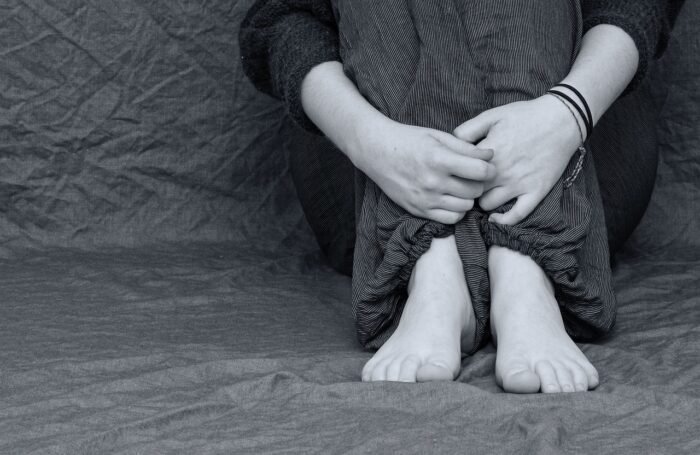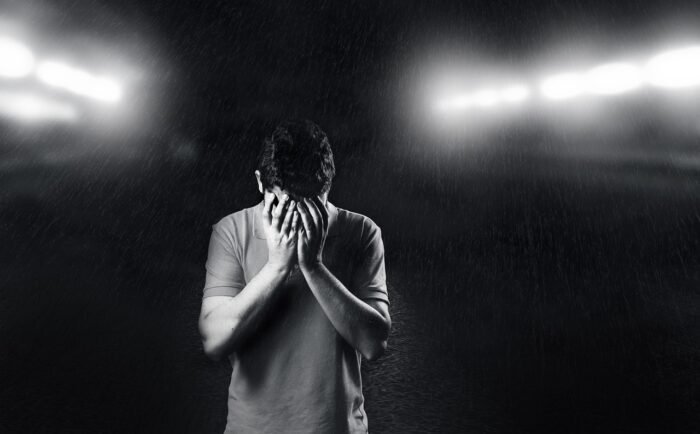Hello Beautiful Readers, Good Day to you all 🙂 In my last post, I am very surprised to tell you that I got a very good response to this post. (Sleep Disorder)

Let me tell you, I am working in an MNC Company and also a homemaker. So sometimes managing Personal and professional life cause depression. So I thought to do some research on depression.
So Here you go!! … I am again back with the most common problem “Depression”. If you like my post then do share it on Social Media for others.
It is essential to understand the different types of depression symptoms, as well as their causes and treatments, to manage your mental health effectively. In this comprehensive guide, I will try to cover everything you need to know about depression symptoms, their causes, and how to treat them.
What are Depression Symptoms?
Depression is a mood disorder that affects how you feel, think, and behave. Depression symptoms can vary in severity and duration, and they can impact your daily life, making it difficult to carry out even the simplest of tasks. The common depression symptoms include:
- Feeling sad or down
- Loss of interest or pleasure in activities once enjoyed
- Changes in appetite and weight
- Difficulty sleeping or oversleeping
- Loss of energy and fatigue
- Feeling guilty or worthless
- Difficulty concentrating
- Physical symptoms such as headaches or stomach problems
- Thoughts of death or suicide
Depression Symptoms in Women
Depression is twice as common in women as in men, and it can be related to hormonal changes that occur during the menstrual cycle, pregnancy, and menopause. Women may experience additional symptoms, such as:
- Irritability
- Excessive crying
- Anxiety
- Appetite changes
- Body aches and pains
- Difficulty sleeping
- Lack of interest in sex
- Hopelessness
Depression Symptoms in Men

Depression is often overlooked in men as they may experience different symptoms than women. Men may present with the following symptoms:
- Anger and irritability
- Aggressiveness
- Substance abuse
- Risk-taking behavior
- Sleep problems
- Loss of interest in work or hobbies
- Physical symptoms such as headaches or digestive problems
Depression Symptoms in Teens
Depression can occur in teenagers and may present differently than in adults. Teenagers may experience the following symptoms:
- Irritability or anger
- Withdrawal from friends and family
- Changes in sleeping patterns
- Fatigue
- Loss of interest in activities
- Poor academic performance
- Feelings of worthlessness or guilt
- Suicidal thoughts
Postnatal Depression Symptoms
Postnatal depression is a type of depression that affects new mothers, usually within the first year after giving birth. Symptoms may include:
- Feeling overwhelmed
- Difficulty bonding with the baby
- Guilt or shame
- Mood swings
- Anxiety
- Fatigue
- Appetite changes
- Difficulty sleeping
- Lack of interest in the baby
Bipolar Depression Symptoms
Bipolar disorder is a mood disorder that causes extreme mood swings, including manic episodes and depressive episodes. Symptoms of bipolar depression may include:
- Feeling sad or hopeless
- Loss of interest in activities
- Changes in appetite and weight
- Fatigue
- Difficulty sleeping or oversleeping
- Suicidal thoughts
- Irritability
- Restlessness
- Poor concentration
Clinical Depression Symptoms
Clinical depression, also known as major depressive disorder, is a severe form of depression that can impact your daily life. Symptoms of clinical depression may include:
- Persistent feelings of sadness or emptiness
- Loss of interest in activities
- Changes in appetite and weight
- Difficulty sleeping or oversleeping
- Fatigue or lack of energy
- Feelings of worthlessness or guilt
- Difficulty concentrating
- Suicidal thoughts
Manic Depression Symptoms
Manic depression, also known as bipolar disorder, causes extreme mood swings between manic and depressive episodes. Symptoms of manic depression may include:
- Elevated mood or irritability
- Racing thoughts
- Decreased need for sleep
- Grandiose thinking
- Impulsivity or risk
Mild Depression Symptoms
Mild depression, also known as dysthymia, is a less severe form of depression than the major depressive disorder. However, it can still have a significant impact on a person’s quality of life. Symptoms can include feelings of sadness, low self-esteem, and a lack of motivation or interest in activities.
While mild depression may not require the same level of intervention as major depressive disorder, it is still important to seek treatment if you are experiencing these symptoms. Therapy, medication, and lifestyle changes can all be effective treatments for mild depression.
Seasonal Depression Symptoms
Seasonal affective disorder (SAD) is a type of depression that is related to changes in the seasons. SAD typically occurs in the fall and winter months, when there is less natural sunlight. Symptoms can include feelings of sadness, fatigue, and increased appetite.
Treatment for seasonal depression may involve light therapy, medication, or lifestyle changes such as increased exercise or spending more time outdoors. If you are experiencing symptoms of seasonal depression, it is important to seek help from a qualified healthcare provider.
Common signs and symptoms of Depression:
- Persistent feelings of sadness or emptiness
- Loss of interest or pleasure in activities once enjoyed
- Changes in appetite or weight
- Insomnia or excessive sleeping
- Fatigue or loss of energy
- Difficulty concentrating, making decisions, or remembering details
- Feelings of worthlessness or guilt
- Restlessness or irritability
- Physical symptoms such as headaches, body aches, or digestive problems
- Thoughts of death or suicide
It’s important to note that not everyone experiences all of these symptoms, and the severity and duration of symptoms can vary from person to person.
If you or someone you know is experiencing any of these symptoms, it may be a sign of depression, and seeking professional help is recommended.
Conclusion
Depression is a common mental health condition that can have a significant impact on a person’s quality of life. It is important to be aware of the symptoms of depression and to seek help if you are experiencing them.
Treatment for depression can involve therapy, medication, and lifestyle changes, and can be effective in helping people to recover and lead fulfilling lives.
By understanding the symptoms of depression and seeking help when needed, you can take steps to improve your mental health and overall well-being.
Thank you for taking the time to read this post, and I hope you found it informative and valuable. If you have any thoughts or feedback, please don’t hesitate to leave a comment below.
FAQ
1. What are some common depression symptoms?
Common depression symptoms include persistent feelings of sadness, hopelessness, and emptiness, loss of interest in activities, changes in appetite or sleep patterns, fatigue, difficulty concentrating, and thoughts of suicide or self-harm.
2. How can I test if I have depression symptoms?
There are several depression symptom tests available online, including the Patient Health Questionnaire (PHQ-9) and the Beck Depression Inventory (BDI). However, it’s important to note that these tests are not substitutes for a professional diagnosis from a licensed healthcare provider.
3. What are the symptoms of postnatal depression?
Postnatal depression symptoms can include feelings of guilt or inadequacy, loss of interest in the baby, changes in appetite or sleep patterns, persistent feelings of sadness or hopelessness, and difficulty bonding with the baby.
4. What are the symptoms of situational depression?
Situational depression is typically triggered by a stressful or traumatic life event, such as the loss of a loved one or a job. Symptoms can include persistent feelings of sadness or hopelessness, changes in appetite or sleep patterns, fatigue, difficulty concentrating, and feelings of guilt or worthlessness.
5. Can depression symptoms be treated?
Yes, depression symptoms can often be successfully treated with a combination of medication, therapy, and lifestyle changes. It’s important to seek professional help from a licensed healthcare provider for an accurate diagnosis and personalized treatment plan.
6. How do you know if you have depression symptoms?
You may have depression symptoms if you experience persistent feelings of sadness, hopelessness, and emptiness, loss of interest in activities, changes in appetite or sleep patterns, fatigue, difficulty concentrating, and thoughts of suicide or self-harm.
7. How long do depression symptoms last?
The duration of depression symptoms can vary from person to person, but it’s generally recommended to seek treatment if symptoms last for more than two weeks.
8. Can depression cause physical symptoms?
Yes, depression can cause physical symptoms such as headaches, stomach aches, and muscle aches, as well as changes in appetite and sleep patterns.
9. Where does depression start?
Depression can be caused by a combination of genetic, biological, environmental, and psychological factors, and it can start at any point in a person’s life.
10. How to ease depression symptoms?
There are several ways to ease depression symptoms, including regular exercise, healthy eating habits, therapy, medication, and practicing stress-reducing techniques such as mindfulness meditation.
11. Was depression common in the past?
Depression has been recognized as a mental health condition for centuries, although it was not always well understood or treated effectively.
12. What are the symptoms of bipolar depression?
Symptoms of bipolar depression can include persistent feelings of sadness or hopelessness, loss of interest in activities, changes in appetite or sleep patterns, fatigue, difficulty concentrating, and thoughts of suicide or self-harm, as well as manic episodes of euphoria or hyperactivity.
13. What are the signs and symptoms of depression?
Signs and symptoms of depression can include persistent feelings of sadness or hopelessness, loss of interest in activities, changes in appetite or sleep patterns, fatigue, difficulty concentrating, and thoughts of suicide or self-harm, as well as physical symptoms such as headaches, stomach aches, and muscle aches.
